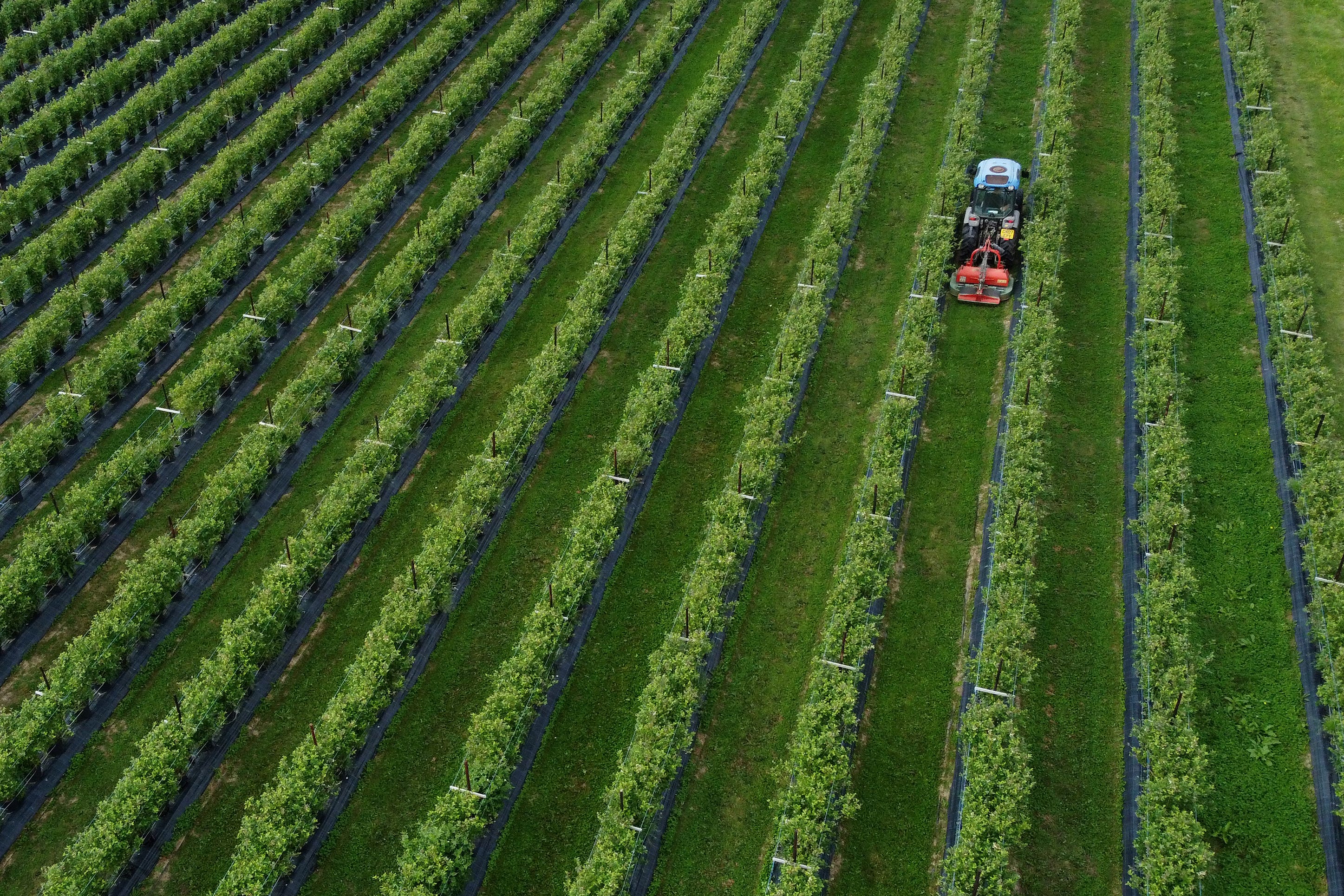Fertiliser company profits soared as food prices rose – report
On Tuesday the boss of the IMF warned of the impact of fertiliser prices on poorer households around the world.

The companies whose fertiliser is vital for farmers to put food on British tables have seen their profits spike as customers had to pay more and more for their fruit and vegetables, a new report has shown.
The three biggest fertiliser suppliers in the UK – CF Industries, Yara and Origin Enterprises – made £5.45 billion in combined net profit last year, up from just £909 million in 2020.
In a written response, Yara said that higher food and fertiliser prices were “not viable nor desired in the longer term” and added that its profits had returned to more normal levels this year.
It comes as International Monetary Fund (IMF) managing director Kristalina Georgieva warned that fertiliser and food prices are “worrying”.
The report from the Energy and Climate Change Intelligence Unit (ECIU) said that the companies’ profits echo those made by the oil and gas industry over the last year.
The effect of high gas prices on our weekly shop is lingering well into 2023
Fertiliser costs soared as manufacturers are so heavily dependent on increasingly expensive gas in the production process.
Farmers have had to face these higher costs, which they have passed on to shops, who in turn have passed them onto customers across the country, the analysis said.
The most commonly used fertiliser in the UK is ammonium nitrate. The cost of that jumped from £217 per tonne in 2020 to £719 per tonne last year.
Tom Lancaster, head of land, food and farming at the ECIU, said: “With retailer profits holding steady and farmers slightly in the black, it is inevitable that the consumer is footing the bill again, this time in the form of record profits for some of the world’s biggest fertiliser companies driven up by the gas crisis.
“With the Bank of England predicting food price inflation to remain high, the effect of high gas prices on our weekly shop is lingering well into 2023.”
On Tuesday IMF boss Ms Georgieva warned that despite good signs, she was worried about the price of food.
“On inflation, there is some encouraging news – the trend is finally downwards,” she said.
“But headline inflation is still too high and core inflation remains sticky despite the significant monetary policy tightening.
“Elevated food and fertiliser prices are particularly worrying, especially for low-income households for which food insecurity and malnutrition are now much more persistent.”
The ECIU said there were other alternative fertilisers which could help farmers and which produce fewer carbon emissions.
Martin Lines, UK chair of the Nature Friendly Farming Network, said: “With input prices increasingly volatile, farming with nature helps reduce my fertiliser bill, whilst maintaining my yields.
“As a result I’m less dependent on fossil fuel inputs and less exposed to global price shocks.
“Healthy soil is more resilient to flooding and drought as well, making me more able to adapt to the worst impacts of climate change.”
A spokesperson for Yara said: “Already on March 1, 2022, Yara was vocal about how higher food and fertiliser prices may positively impact our bottom line in the short term.
“However, this is not viable nor desired in the longer term: Long-term value creation for private companies can only be achieved through a sustainable food system with food being affordable and accessible to the world population.
“A world with unstable food supply is a world with famine in parts of the world, increased mortality, armed conflict, migration, riots, and destabilised societies which can further accelerate geopolitical tensions.”
It added: “We did record high profits last year, but as you can see from our first quarter results this year, the situation is very different now, illustrative of the current volatility.”
Yara recorded a fall in net income from 947 million US dollars (£726 million) in the first quarter of 2022 to 105 million dollars (£81 million) in the first quarter of this year.
Bookmark popover
Removed from bookmarks